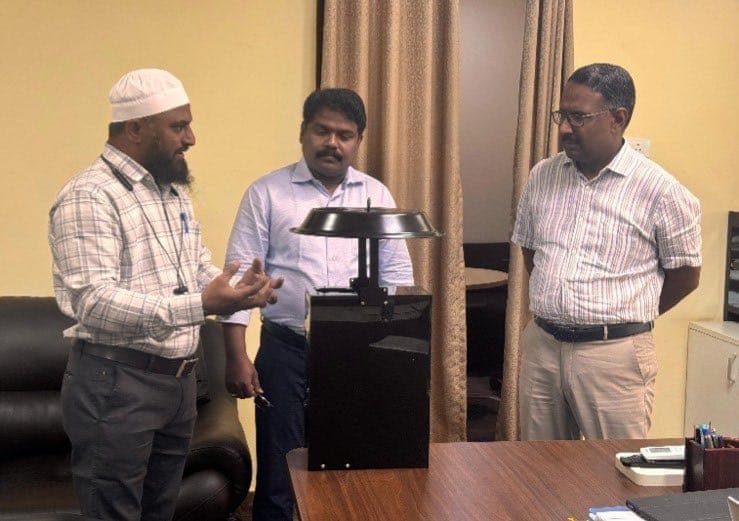
Andhra Pradesh Chief Minister Chandrababu Naidu is always talking about technology as the answer to challenges old and new. That is one big reason why the state now wants to use an AI-driven program to combat mosquitoes and vector-borne diseases.
The Municipal Administration and Urban Development (MAUD) Department of the Andhra Pradesh government is rolling out the Smart Mosquito Surveillance System (SMoSS).
This innovative, AI-driven program that uses IoT technology too, will be piloted across 66 strategic locations in six major municipal corporations, marking a shift from traditional "blind spraying" to a data-driven, targeted approach.
The AI-powered SMoSS, developed by a private agency, aims to not only curb the persistent mosquito menace but also reduce the operational burden on civic staff and lower costs for Urban Local Bodies (ULBs). The system leverages cutting-edge Internet-of-Things (IoT) technologies, including smart sensors, drones, heat maps, and traps, for comprehensive and real-time monitoring.

The pilot project is set to launch soon, with 16 locations in Greater Visakhapatnam Municipal Corporation, four in Kakinada, five in Rajamahendravaram, 28 in Vijayawada, seven in Nellore, and six in Kurnool.
A core component of SMoSS involves the installation of AI-powered smart mosquito sensors in key mosquito-prone zones. These sensors are capable of detecting mosquito species, gender, density, and environmental factors like temperature and humidity.
Crucially, SMoSS will automatically trigger alerts when mosquito density in a specific area surpasses a predefined threshold.
The data generated by these sensors will be continuously streamed to a central server and visualized on a real-time dashboard.
According to MAUD Department Principal Secretary S. Suresh Kumar and Director of Municipal Administration P. Sampath Kumar, this live data will enable precise monitoring and facilitate prompt, targeted fumigation, a stark improvement over the current less effective "blind spraying" methods.
Furthermore, the program will integrate drones for spraying larvicides. This is expected to significantly enhance efficiency by covering large areas swiftly, reducing chemical usage, saving time, and cutting costs.
The emphasis is on evidence-based spraying, preventing chemical overuse, and promoting public health safety.
To ensure accountability and efficiency, the operations will be entirely outsourced to specialized agencies, with payments linked to results. Citizen complaints and field reports will be actively tracked via mobile applications like Vector Control and Puramitra.
In a comprehensive approach to public health, the system will also receive daily reports on cases of malaria, dengue, and chikungunya from hospitals across the state. This crucial data will be used to identify mosquito "hotspots," enabling the development of special action plans for scheduled fogging and larval treatment in these high-risk areas.
Essential Business Intelligence, Continuous LIVE TV, Sharp Market Insights, Practical Personal Finance Advice and Latest Stories — On NDTV Profit.























